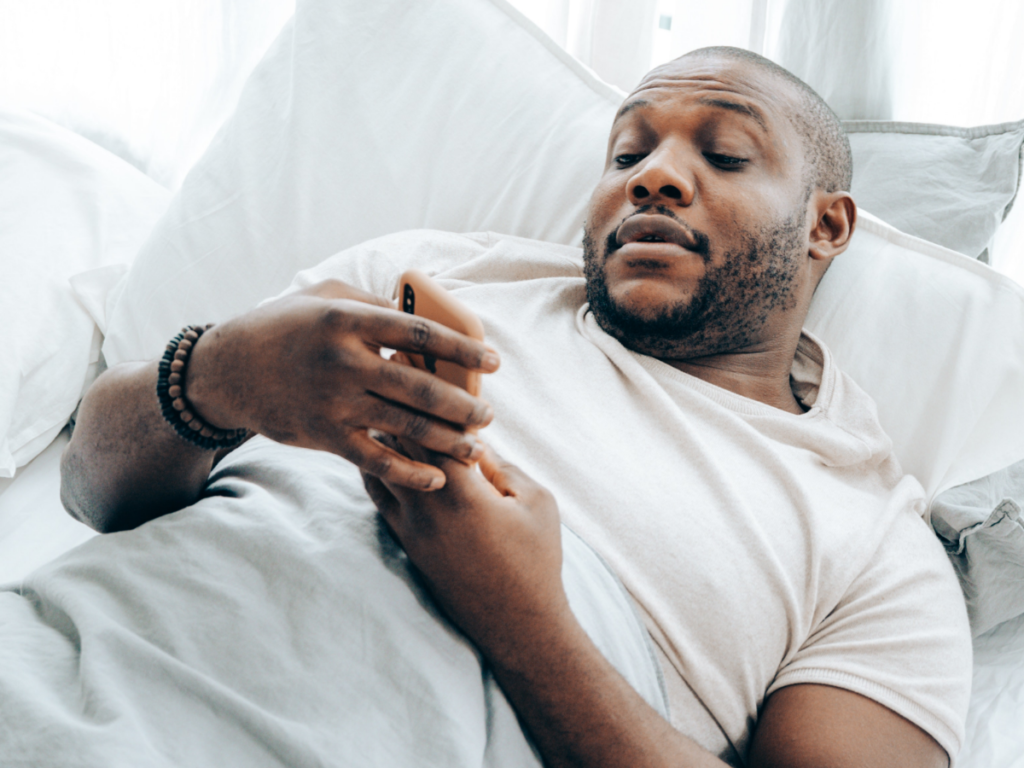Erectile dysfunction is a complex condition that affects millions of men around the world. The Journal of Sexual Medicine found the prevalence of erectile dysfunction across all age groups to be around 40 percent, but what causes it? There isn’t one simple answer. A wide variety of factors can affect your sexual performance, from physical health issues to mental health conditions.
Our experts take a closer look at the major causes of erectile dysfunction to help you understand more about the condition and how we can help you start treating it.
Causes of impotence
A number of factors can affect your ability to maintain an erection, including chronic health conditions and substance use. Symptoms may be caused by reduced blood flow to your penis, nerve/neurological damage or hormonal issues. Let’s take a closer look at some common conditions that can affect your erections.
Hypertension
Hypertension, or high blood pressure, can affect your erections in many ways. It can damage the walls of your arteries, which may prevent enough blood flowing into your penis to cause an erection. High blood pressure also prevents smooth muscles in your penis from relaxing when needed, further reducing blood flow.
Some blood pressure medications can also contribute to erectile dysfunction. Beta-blockers can impair nerve signals, while blood thinners can reduce the force of blood flow to your penis.
Atherosclerosis
Atherosclerosis is a condition that causes plaque to build up in your arteries. This limits the amount of blood that can enter the blood vessels in your penis, which makes it difficult for you to get and maintain erections.
Erectile dysfunction can act as an early warning sign of atherosclerosis, though, allowing you time to make lifestyle changes and start treatment to slow it down.
High cholesterol
Like atherosclerosis, having high cholesterol can have a negative effect on your sexual health. It impairs the function of your arteries, which can reduce blood flow to your penis and stop you from maintaining erections.
Diabetes
Men with diabetes have an increased risk of erectile dysfunction. Studies show that between 35 to 75 percent of men with diabetes experience erection trouble. Having high blood sugar over a sustained period of time can cause damage to the nerves, veins and arteries around your penis, which reduces the quality of erections.
If you have diabetes, it can be more difficult to treat erection issues. That’s because some drugs used in the treatment of erectile dysfunction can interact with heart medications you take if you’re diabetic. If you have diabetes and erectile dysfunction, speak to your GP to explore possible treatment options.
Multiple sclerosis (MS)
Erectile dysfunction is more common in men with multiple sclerosis. Nerve damage and nerve impulse interruption are common when you have MS, and this can make erections difficult to achieve and maintain.
Hormonal imbalance
Some medical conditions and certain drugs can affect the production or balance of hormones like testosterone in your bloodstream, which can cause side effects like erectile dysfunction. Low testosterone levels can be caused by a number of factors, including stress, hypothyroidism or hypogonadism (reduced hormones in the testes). Having reduced testosterone affects the chemicals that help increase blood flow during sexual stimulation, which stops you from having strong erections.
Surgery or injury
If you’ve had surgeries or injuries that affect your groin, nervous system or circulatory system, this can also cause erectile dysfunction. Anything that prevents nerve signals, hormones and strong blood flow reaching your penis when you’re aroused can reduce your sexual function.
Anatomical problems
Other conditions can affect your ability to get an erection — some are genetic, others develop as you get older. Prostate enlargement, for example, is commonly associated with hormonal changes in ageing men. The extra pressure an enlarged prostate puts on your pelvic area can restrict blood flow, which makes it difficult to get a strong erection. Another common cause of erectile dysfunction in all age groups are venous leaks, a condition that prevents your tissues from retaining blood.
Drug use
Nicotine and alcohol are two of the most common substances that affect the quality of your erections. Excessive smoking causes arterial narrowing and reduced blood flow, while long-term alcohol consumption can instead result in widespread nervous system damage and hormone imbalances, caused by liver damage and testicular shrinkage.
However, even some prescription drugs can cause side effects that include erectile dysfunction. In fact, there may be more than 200 types of prescription drugs that could affect your erections, depending on your metabolism and physiology. Their effects on your sexual function can vary from reducing your sex drive to disrupting your hormone balance.
Mental health concerns
There are also some psychological conditions that may affect your erections. Because medical treatments only address the physical symptoms of erectile dysfunction, these factors are often best treated with therapy or changes in your environment.
Anxiety and general stress can have a negative effect on your sexual function. This includes sexual performance anxiety. Your blood vessels can constrict when you’re experiencing high stress or anxiety levels, which reduces the amount of blood that can get into your penis. Erectile dysfunction itself can also cause performance anxiety about future sexual activity, which can reduce your ability to maintain an erection the next time you have sex. If you’re feeling stressed and it’s affecting your sex life, you can try self-help techniques such as meditation and mindfulness to relax before sex.
Depression can also cause erectile dysfunction in much the same way as anxiety and stress. The effect it has on your sexual performance will generally fluctuate with the severity of a depressive episode. Even if you’re receiving treatment for depression, you might experience erection issues because some antidepressant medications can interfere with hormones that are essential for sexual function. If you’ve noticed symptoms of erectile dysfunction after starting antidepressants, speak to your GP to discuss your treatment options.
How to treat erectile dysfunction
The good news is, treatments for erectile dysfunction are available. Some popular medications are:
Looking to improve your sexual performance? Find out what treatment is suitable for you on our website.



